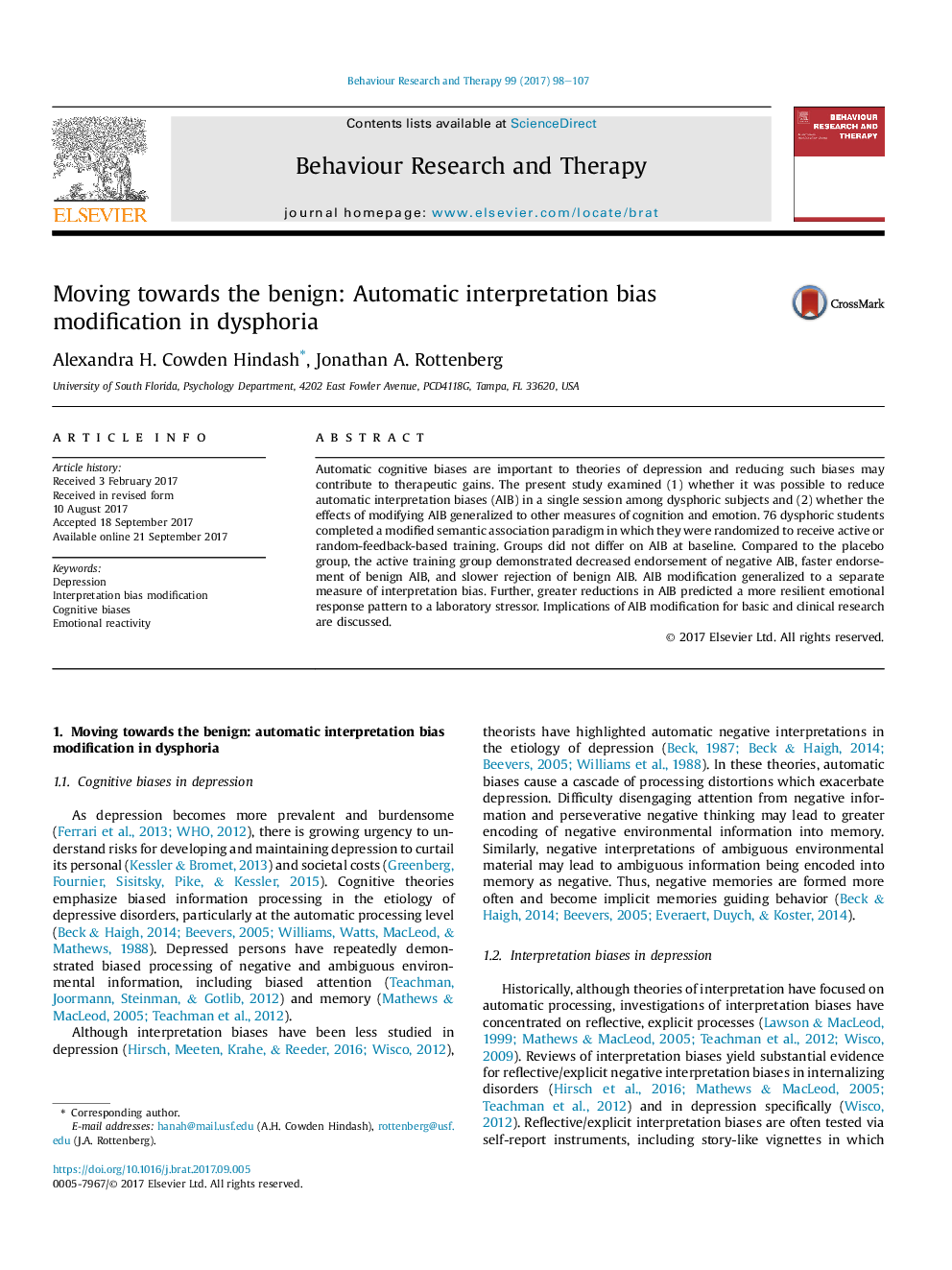| Article ID | Journal | Published Year | Pages | File Type |
|---|---|---|---|---|
| 5038115 | Behaviour Research and Therapy | 2017 | 10 Pages |
â¢Automatic interpretation biases (AIB), central to depression but little understood.â¢AIB can be modified through quick-paced semantic association in a single session.â¢AIB changes generalize to a second independent measure of AIB.â¢AIB changes predict more resilient emotional reactivity to failure.â¢Study offers proof-of-principle that AIB modification may have therapeutic use.
Automatic cognitive biases are important to theories of depression and reducing such biases may contribute to therapeutic gains. The present study examined (1) whether it was possible to reduce automatic interpretation biases (AIB) in a single session among dysphoric subjects and (2) whether the effects of modifying AIB generalized to other measures of cognition and emotion. 76 dysphoric students completed a modified semantic association paradigm in which they were randomized to receive active or random-feedback-based training. Groups did not differ on AIB at baseline. Compared to the placebo group, the active training group demonstrated decreased endorsement of negative AIB, faster endorsement of benign AIB, and slower rejection of benign AIB. AIB modification generalized to a separate measure of interpretation bias. Further, greater reductions in AIB predicted a more resilient emotional response pattern to a laboratory stressor. Implications of AIB modification for basic and clinical research are discussed.
